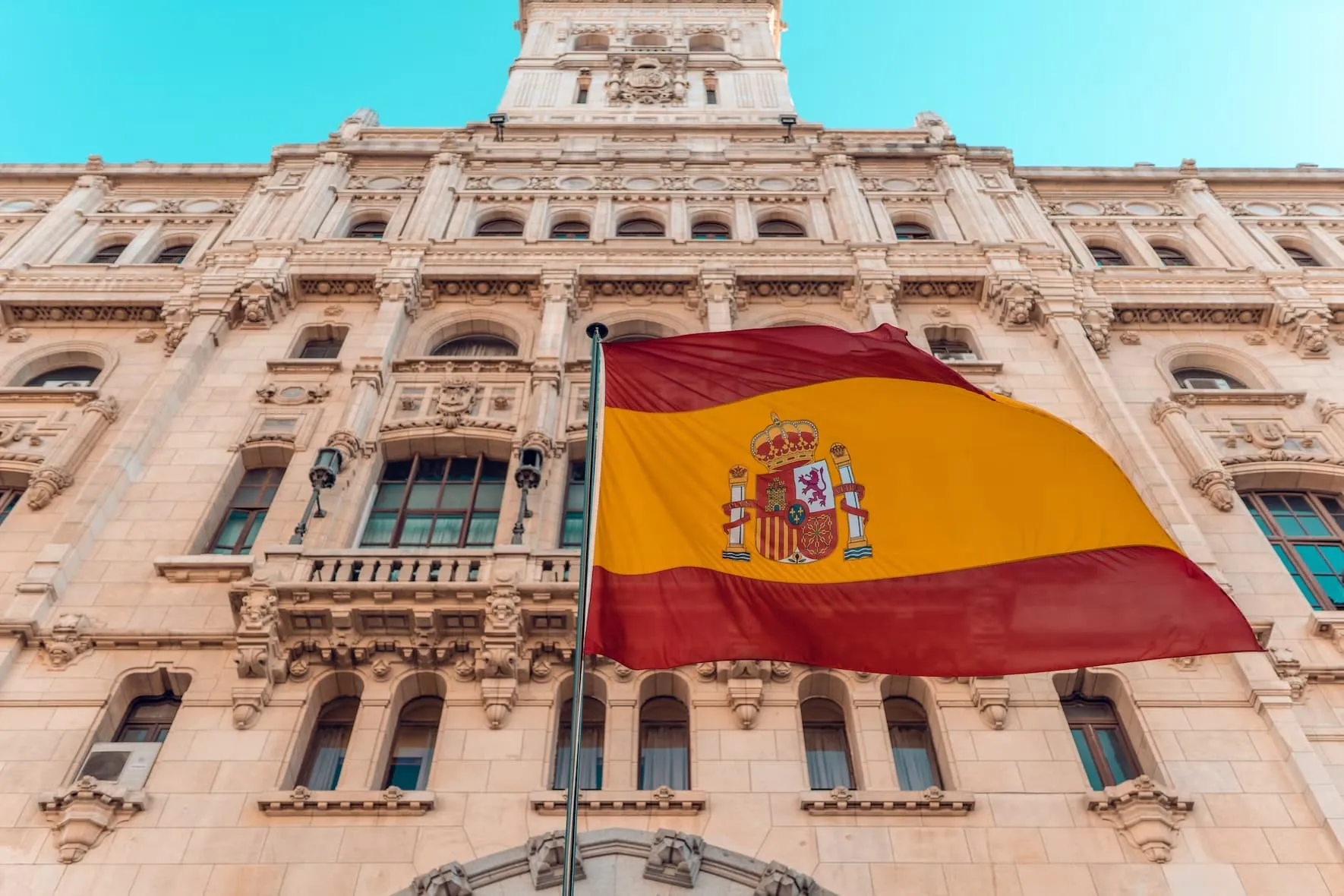Non-Lucrative Visa Spain (NLV)
The Non-Lucrative Visa (NLV) for Spain is an ideal route for those waiting to live in Spain and who are financially self-sufficient without needing to work for an employer or be self-employed.
If you would like to learn more about the Non-Lucrative Visa for Spain or you have other questions about how to immigrate to Spain, reach out to trusted immigration advisers and lawyers today. You can call Immigration Advice Service on +44 (0)333 414 9244 or contact us online.
Read our 1001 reviews
Request a call back from our immigration experts
Benefits of Choosing IAS‘ Spain Immigration Lawyers
When it comes to obtaining a Spain visa or permit, IAS Spain immigration lawyers are well-equipped to help you.
With IAS’ track record of successfully helping clients visit or immigrate to Ireland successfully, we can help businesses and individuals achieve their goals.
Our dedicated immigration lawyers provide our services through a comprehensive and personalised approach. With IAS, you enjoy:

Expert support from an experienced immigration lawyer dedicated to your success



Support in gathering supporting documents and completing a high-quality application.



Confidence that your case is being handled by an experienced team.



In-house document checks done by lawyers who are accredited by the IBA in Madrid and Seville.
Services we Provide
What is a Non-Lucrative Residence Visa in Spain?
With the Non-Lucrative Visa for Spain, also known as Non-working visa, you will be able to stay in Spain long-term and move between the different countries in the Schengen area. You can also bring family members with you once granted a Spanish Non-Lucrative Visa.
You may find the Non-Lucrative Visa for Spain suits your lifestyle if you have the required amount of funds and do not plan to carry out professional activity. The visa can also be an attractive option for people who want to retire in the country.
The Spanish Non-Lucrative Visa is a passive income visa, which means that you must be able to show that you can support yourself during your stay in Spain without any earning activities. In addition, the Non-Lucrative Visa allows holders to study while in the country.
In addition, beneficiaries of income-producing investments, people with endowment, pension, or annuity and those with savings to live on may be eligible for a Spanish Non-Lucrative Residence Visa.
Eligibility Requirements for Spain Non-Lucrative Visa
Overview
In order to be eligible for the Non-Lucrative Visa for Spain, applicants should:
- Have the economic means to financially provide for themselves in Spain
- Not have a criminal record within the last 5 years
- Have access to public healthcare or private health insurance that provides the equivalent with an insurer authorised to run in Spain
- Not have entered or stayed illegally in Spain
- Be the spouse or unmarried partner of someone granted a Non-Lucrative Visa
- Be the child or dependant relative in the ascending line who form part of the family unit of someone granted a Non-Lucrative Visa
- Not have been refused entry into any of the Schengen countries
- Have a place to live in Spain that is either owned or rented
- Possess a residence permit from a third country (not a member of the EU) such as the United States or Canada
- Have paid all associated visa fees
EU citizens and British expatriates who already have a TIE card have the right to free movement and Residence in Spain under the withdrawal agreement, therefore, the Non-Lucrative Residency Visa for Spain is not suitable for them.
Financial Requirements for the Spain Non-Lucrative Visa
IPREM (Public Indicator of Multiple Effects Income index reference) is used to determine whether the person applying meets the financial requirements for a Non-Lucrative Visa in Spain. IPREM is the benchmark for the allocation of economic aid, unemployment benefit and subsidies in Spain. For the primary applicant, this means that their economic funds requirement will be based on the multiplication of 400% by the annual IPREM (€28,800).
If a family member is travelling with you, there will be an additional 100% (€7,200) for each additional person. For example, €36,000 would be required for a couple. It is usually recommended to have €30,000 as the minimum annual income.
The type of income that you can use to meet the eligibility requirements for a Non-Lucrative Visa in Spain include:
- Rental income from property outside of Spain
- Income made from royalties
- Income from trust fund disbursements
- Income from endowment or annuity
- Interest made from savings
- Dividends from a limited company that you have shares in
- Dividends from investments


Health Insurance Requirements for Spain Non-Lucrative Residence Visa
The private medical health insurance policy you have to get for your Spanish Non-Lucrative Visa should not have deductibles and must be from an insurance company authorised by the Spanish government.
The insurance policy must be fully comprehensive, providing full health insurance coverage in the whole of Spain, covering the term of the visa and having no co-payments. If you are a UK citizen who qualifies for an S1, you may be considered to have met the requirement to prove you have health coverage.
How to Apply for a Non-Lucrative Residence Visa for Spain?
Overview
Your application for the Spanish Non-Lucrative Visa should be made at least 5 weeks before travelling to Spain. As an individual applying for the Non-Lucrative Visa for Spain, you need to also get a residence permit which gets processed at the same time as the application for the visa.
The candidate must apply from their country of origin and the Consular Office may request additional documents to be provided or for an interview to be attended.
Appointment for the Non-Lucrative Residence Visa for Spain
Appointments for the Spanish Non-Lucrative Visa can be scheduled through the website of the Spanish consulate or by phone. You are advised to ensure you book your appointment well in advance of traveling to Spain.
People applying should be legally living in the jurisdiction of the Consulate General and should ensure that the application is submitted in person at the Consular Office. The application can be made through the Spanish consulate, embassy, or a certified company offering visas for Spain.
One appointment must be requested per applicant. Family members that are accompanying the candidate and want to apply for a visa need to book an additional appointment.
In the case of minors, their parents, legal guardians, or duly accredited representatives ,such as lawyers, may apply on behalf of the applicant.
Interview for the Non-Lucrative Residence Visa for Spain
On the day of your interview for the Spanish Non-Lucrative Visa, you will have to provide biometric data (including a facial image and fingerprints) if you have not travelled to the Schengen territory in the last 5 years.
You need to submit the documents required for your application. In the interview, authorities assess the eligibility of the person coming to Spain and ensure they are not planning to work while holding a Non-Lucrative Visa.
Income Requirements for Spain Non-Lucrative Visa
Savings can be used instead of income or to make up for a shortfall in the minimum amount required to show economic means. If you are making an application with a combination of income and savings to show your financial means, you could use regular qualifying passive income and a minimum of €30,000 of savings in a bank account in your name. You could also use €60,000 in your bank account without passive income.
Payment for the visa fee can be made in cash, certified cheque, or money order. Proof of receipt, which can be used to check the status of the application online, is given.


Documents Required for Spain Non-Lucrative Visa
Overview
The documents you need to provide in order to complete your application for a Non-Lucrative Visa for Spain include:
- Original and copy of valid passport with 1 year before expiry and a minimum of 2 blank pages to stamp the Non-Lucrative Visa for Spain
- Medical certificate showing that you do not have a disease that could threaten public health in Spain
- Criminal record check certificate from the past 5 years
- Proof of funds to cover the expenses of living in Spain for the initial year of the residence permit
- Evidence of health insurance from a private Spanish company
- Birth certificate
- Be the spouse or child of an applicant for a Non-Lucrative Visa for Spain
- National visa application form
- Non-working residence visa application form
- Passport-size photograph (3×4 cm)
The notarised document you provide for your application process should explain why you are requesting for the visa, the purpose of obtaining the visa, the location and length of stay in Spain.
Document Requirements for Relatives
Family members will be required to provide additional documents. Proof of family relationship with the visa applicant must be presented. The proof could be a marriage certificate or birth certificate. Foreign documents should be legalised or apostilled and, when required, submitted with an official Spanish translation.
Relatives in the ascending line of people applying have to show documents that prove their financial dependence and that they form part of the family unit. Foreign documents would have to be submitted with an official Spanish transcript and legalised or apostilled.
If you are the adult child of Non-Lucrative Residency Visa applicants, you will need to disclose documents proving financial dependence, civil status and the continuance of their part in the family unit.
If a minor is travelling with one parent, a notarised authorisation from the other parent or an official document proving sole custody would be required.
Documents Required to Prove Financial Means
Documents that can be used as proof of your financial means include bank statements for the 6 – 12 months before the date you apply at the Spanish consulate and proof of other sources of income or investment.
Other suitable documents include payslips, government pension, possession of any assets that guarantee income, state pension and pension scheme.
A validation document may be required from your bank to prove the validity of your credit cards or the value of your property. Some consulates may require bank statements for the previous 6 months to determine normal activity and to identify transactions used to move the bank balance above the threshold. Other consulates may accept documents on assets like stocks, bonds and real estate value. The name on the bank statement must be the same as the name of the main visa candidate.
Providing documentation to prove you have sufficient economic means may be considered one of the most challenging aspects of applying as the sufficiency of the documentation is dependent on the consulate you are making your application with. Certain consulates may, for reasons unique to them, refuse to accept evidence of economic solvency.
If you are unsure of the documents to be presented then you may wish to seek advice from an immigration specialist to ensure your application is processed without delays or possible rejection.
Police Report and Healthcare Requirements
The police report you have to provide should be issued by the police department located in the region you have lived in for the previous year. The criminal record shown must cover the last 5 years in the countries you lived for at least 6 months. The police clearance certificate should be less than 90 days old.
Your medical certificate of good health should show that you do not suffer from diseases found in the 2005 International Health Regulations. The medical certificate must be issued no more than 3 months before the application for a visa.


Costs for a Spain Non-lucrative Visa
The fees for your Spanish Non-Lucrative Visa is dependent on your nationality. Those applying from most countries may need to pay visa application fees of €80 while citizens from the United States of America may need to pay around €123 and citizens of Canada may have to pay approximately €507.
Processing Times for a Non-lucrative Residence Visa
It can take up to 3 months for an application for a Spanish Non-Lucrative Visa to get processed but the usual time period for most countries is 2 to 5 weeks. The legal period for a decision to get made is 3 months from the day after the application submission date. It could take longer for your application to get processed if requests are made for an interview or additional documents.
Processing times in the UK and USA can vary, depending on where the consulate you apply with is located. If you do not receive feedback from the consulate within a month of your application, it could be likely that your application has been rejected. If no response is received within the period, the request could be considered as rejected due to “administrative silence”.
What Happens If My Application is Rejected?
If your application is rejected, you receive a notification in writing with the reasons for the decision. An appeal can be made within a month from the day after the date you received notification of the application rejection.
With the help of lawyers, you can also make an application for judicial review with the High Court of Justice of Madrid within 2 months of the day after the date of the notification of the rejection of the application or resident permit application, or reconsideration appeal.


What Happens After My Application is Approved?
The visa has to be collected in person by the individual who has applied for it or their legal representative (if they are a minor) a month from the day the notification is given of the favourable decision on the application. After your visa is issued to you by your local consulate or embassy, you get 90 days to arrive in Spain.
The visa comes with the NIE (Foreign Identity Number). The number is the identification number of a foreigner and will allow you to carry out activities in Spain like opening a bank account and purchasing property. The number does not change and is unique to each person.
If you are a UK citizen who qualifies for an S1, you will need to consider the time it takes the Overseas Pension Office at the NHS in the UK to send your S1 to Spain so you can get it in time for a Non-Lucrative Residency Visa appointment at the consulate. After you get to Spain, you will need to get your S1 registered in Spain. The process begins after you get your TIE. It can take Spanish Social Security (Seguridad Social) up to 6 months to issue a certificate for you to register with a doctor.
After entering Spain with your Spanish non lucrative visa, you will have one month from the date of your entry to apply for a Foreigner Identity Card at your local police station. To get the Foreigner Identity Card, you need to register in the municipality where you live in Spain. Registration for the municipality can be done at the town hall that corresponds to your municipality in Spain. You would also have to attend an appointment with a police station to register your fingerprints and collect your identity card.
A Non-Lucrative Residency Visa is valid for one year. The validity period for the visa starts from the date you enter Spain.
Non-Lucrative Visa Renewal in Spain
You can choose to apply for your visa to be renewed. In order to meet the requirements for renewal, you need to prove that you have enough money (800% of the IPREM) for two years of living in Spain. This is due to the extension lasting two years compared to the initial one year period of the initial visa.
Your application needs to be sent with documents that prove you have lived in Spain for at least 6 months, have no criminal record, have private health insurance and have no debts. As spending at least 183 days in Spain is compulsory to get your Non Lucrative Visa renewed, becoming a tax resident is implied.
After receiving the Non-Lucrative Residence Permit, you will be able to renew your residence permit for 5 years, provided you stay in Spain for at least 6 months per year with a non-lucrative residence permit over 2 years.
The application for the renewal of the residence card must be submitted 60 days before or 90 days after the expiration of the card. Renewal applications can be made in Spain.
Work Authorisation and Citizenship
You will be able to apply for Spanish citizenship after 10 consecutive years of residence in Spain. After 5 years with a temporary residence permit in Spain, you’ll be eligible for a permanent residence permit. To prove continuous residence in Spain through the qualifying period of 5 years, you will need to make sure that you don’t spend more than 10 months outside of Spain during the qualifying period.
Your initial authorisation can be changed to a work permit in Spain so that you may work for a company or be self-employed in the country. To get a work permit through an employer in Spain, you need to meet several requirements, including searching for work and getting work authorisation.
To get a work permit for self-employed individuals, you would need to meet the work permit requirements for self-employed individuals which include having a business plan and qualifications and/or experience related to your business. You would also need to have lived in Spain for at least a year.
Spain Non-Lucrative Visa Taxes
Generally speaking, you will be classed as a tax resident in Spain if you spend more than 183 days there, which will be the case for most people on a Non-lucrative visa.
When this happens, you will generally have to pay tax on any passive income you are earning from outside of Spain, unless any exemptions apply.
You will also have to pay tax on other financial activities such as investments or from the purchase and selling of property in Spain.
Benefits of the Non-Lucrative Visa
There are numerous benefits to the Spanish Non-lucrative visa which may make it an ideal option for non-Spanish nationals to settle in Spain.
These include the following:
- Non-lucrative visa holders do not have to invest in any Spanish investments or projects
- Visa holders are eligible to free movement across the entirety of the Schengen area
- Visa holders are able to apply for permanent residency in Spain after a qualifying period of time and then eventually citizenship, if desired
- Visa holders are able to bring their partner/spouse and dependent children with them
- There is the possibility of switching over to a working residency permit if the visa holder later decides that they wish to work in Spain
How Can IAS Help?
Spain is an attractive destination to purchase a house, make investments, immigrate to and retire in. As a holder of a Non-Lucrative Visa in Spain, you will be able to travel to other EU and Schengen countries, spending up to 90 days in every 180 days in the region. In addition to other benefits, these factors drive demand for Non-Lucrative visas for Spain.
Our expert advisers and lawyers have the resources and knowledge to help you with the Spanish Non-Lucrative Visa. We can help with documentation, certification requirements and translation.
Our lawyers will help you through the legal processes to complete for your Non-Lucrative Visa application. We can support you with paperwork and translation of official documents through sworn translators authorised by the Spanish Ministry of Foreign affairs (MAEC)
If you would like to get additional information about the non lucrative visa, our immigration advisers and lawyers can help you. Please call us on +44 (0)333 414 9244, or contact us online today.
Table of Contents
Table of Contents will appear here.Legal Disclaimer
The information provided is for general informational purposes only and does not constitute legal advice. While we make every effort to ensure accuracy, the law may change, and the information may not reflect the most current legal developments. No warranty is given regarding the accuracy or completeness of the information, and we do not accept liability in such cases. We recommend consulting with a qualified lawyer at Immigration Advice Service before making any decisions based on the content provided.
Frequently Asked Questions
You may be eligible to apply for Non-Lucrative Visa if you have family members in Spain with enough funds to support you.
With a Spanish Non-Lucrative Visa, you can participate in investment activities like stock or fund purchases. While the visa can be used to make income from investment activities, it cannot be used to work in Spain.
You don’t have to invest in the country to get a Non-Lucrative Visa in Spain. Proof that you have enough funds to sustain yourself in Spain is sufficient to meet the financial requirements for the visa.
You cannot get a Spanish Non-Lucrative Visa right after studying for years with a student visa in Spain. If you want to switch from your student visa to a Spanish Non-Lucrative Visa, you may need to go to your home country after studying to begin applying.
There are some limitations on a Non-Lucrative Visa, such as not being allowed to claim benefits, having to spend 183 days per year in Spain to renew your visa, not being able to do work that generates income in Spain, not having access to the public healthcare system and legal tax residents status in Spain.


What our clients are saying
How our UK Immigration Lawyers can help
At the Immigration Advice Service our lawyers specialise in a wide range of UK visas, nationality and asylum applications and have represented clients in various successful complex and high-profile cases.















